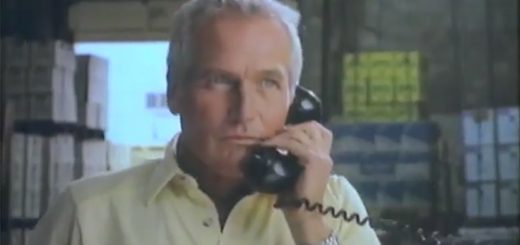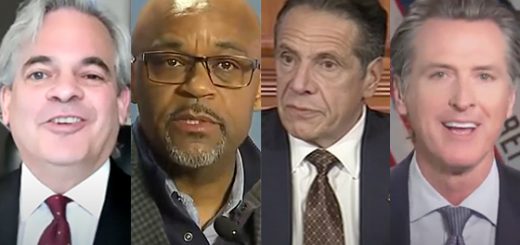At least the Brits admit there’s a problem.

Click here to listen to the broadcast of You Tell Me on KTBB AM 600, Friday, March 2, 2012.
Liam Byrne was the Chief Secretary to the Treasury, kind of the number two treasury official in Great Britain behind the Chancellor of the Exchequer. According to a story in the Telegraph of London, as he was leaving office in 2010, he left his successor a note that simply said, “Dear Chief Secretary. I’m afraid to tell you there’s no money left.”
(So sorry, old boy.)
There’s no money left in the U.K. and there’s no money left here. The only difference is that the coalition government is admitting as much in Britain while politicians on both sides of the aisle here in the U.S. talk of our dismal finances only in oblique terms.
Britain’s Chancellor of the Exchequer customarily presents the budget to the public in a speech to the House of Commons on Budget Day, almost always a Tuesday in March.
In his budget speech this month, the current Chancellor, George Osborne, is expected to say officially what he has been saying informally since taking the office — that that the U.K. can no longer afford its social programs, cannot afford to cut taxes and can do little to stimulate the economy.
“The British Government has run out of money because all the money was spent in the good years,” said Osborne. “The money and the investment and the jobs need to come from the private sector.”
Osborne is a member of the Conservative Party and holds the job of Chancellor of the Exchequer under a coalition government in which Conservatives hold more seats than the Labour Party but nevertheless lack a majority. Predictably, the members of the liberal Labour Party take exception to Mr. Osborne’s assessment. They don’t believe that reliance on the private sector is the only hope for avoiding fiscal Armageddon and, like Democrats in the U.S., believe that government spending must play a major role in reviving the flagging British economy.
The riots that took place in London last year as a result of the government even mentioning raising the out-of-pocket cost for college is evidence that consensus on what to do about Britain’s poor financial condition remains as elusive as the debates are contentious.
But at least credit the Brits with this much. Aside from the unavoidable extremists and wingnuts, reasonable people on both sides in the U.K. at least recognize that the country is, in fact, out of money. Which is more than can be said for our government.
Worse, it’s apparently more than can be said for our Republican candidates for president.
That the country is broke, and can no longer afford even its existing social programs, such as Social Security, Medicare and Medicaid, let alone expansions such as Obamacare, is an admission that will never come from the Obama administration.
But let me ask you, how directly have you heard this stated by Santorum, Romney or Gingrich? (And please spare me your emails. I know that Ron Paul has gotten somewhere close to the core of this issue, but he will never be president.)
To my ear, of the current frontrunners, Romney is parsing every single vote that Santorum ever took in the Senate in the hope of making political hay while Santorum is apparently stuck on the tar baby subject of contraception.
Neither is actually saying out loud in plain English that the country is broke, will be unable to borrow to meet its cash needs for much longer and that unless dramatic changes are implemented by the next administration, could soon find itself past the point of financial return.
The Brits are at least saying it out loud, which is progress.
I fear that our politicians never will.








They redily admit there is not money here, too. They just don’t give a damn! America has lived on credit for so long that they know nothing else…I did, went bankruput…now live out of my pocket and couldn’t be happier.
Ricko
The administration of Obama-the-Great has hastened our decline as a nation on all fronts: cultural, moral, educational, financial, defense and international. This is clearly a deliberate move to create despair among the informed, Conservative, anti big government voters while appealing to the Marxist/Socialist Democrats and unwitting citizens that are looking for more welfare handouts.
I’m afraid that a disillusioned country that is near bankruptcy will be easy pickings for the tyranny that Barry and his autocrats have been planning for decades. They HATE the Constitution and now they see a way to gain dictatorial control over each citizen as stealth financial ruin of the economy and our currency takes place. This will continue to happen since Congress (Republican House) has shown itself incapable of taking the extreme steps that could stop this demise. Ogama is determined to bypass anything that Congress would try, anyway. His defeat is our only hope to begin a genuine recovery. Are the Republican Presidential candidates willing to fearlessly sound the alarm with conviction and persuasion?
What is so maddening is the constant propaganda by Barry and his slavish media to promote the LIE of good economic news of a slow, steady recovery. The seeds of disaster are already sprouting: green energy (kill fossil energy) and Obamacare (kill private health care system). Capitalism will not survive if the Energy and Healthcare systems are essentially nationalized by regulation as autocrats smother all forms of innovation and dictate government approved Socialist solutions.
It is easy to see how helpless each typical family will become as they loose faith in Capitalism as their financial plight worsens (without knowing why). Initially, the Big Government Safety Net will look very attractive. This will hasten total dependence on government mandates as the regulators (masterminds) struggle to maintain their facade of superior intelligence. We all know that the country will collapse as the inevitable confiscation of all personal wealth occurs in order to keep the masses happy.
At that point the Socialist States of America will join the historical heap of all tyrannies. Before this becomes fact, the wise among us had better be prepared to seek a home in another country that has already started to back away from this abyss. History is only repeating itself. Remember Ellis Island, anyone? We are not immune from the fiscal and moral laws of nature!
When individual responsibility and an informed public die, tyranny always replaces the resultant vacuum.